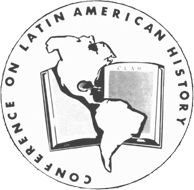Using the Internet in Teaching and Research on Latin America
CLAH Newsletter, vol. 37, no. 1(Spring/Summer 2001)
Teaching Committee
by Marc Becker, Truman State University
The CLAH Teaching Committee sponsored the panel “Using the Internet in Teaching and Research on Latin America,” chaired by Bob Levine, University of Miami. Panelists discussed innovative methods that they utilize for incorporating new computer technology into their pedagogy.
Daryle Williams, University of Maryland, presented “Instructional Technology and Latin American History: A Case Study” in which he described his experiences in having students in a Latin American Studies course develop a hypertext version of an annotated primary source. He discussed his rationale for engaging in this assignment, technological pitfalls that he experienced in this exercise, and how to work around them.
Marc Becker, Truman State University, presented “Pedagogical Implications of Using Web Page Construction as a Classroom Assignment.” Complementing Williams’ talk, Becker discussed his experimental strategies for crafting an assignment of having students design web pages as a meaningful and valuable educational experience.
Stephanie Wood, University of Oregon, presented “Frida and Coyolxauhqui: Teaching Gender in Mexican History with the Net.” She discussed the conceptualization and teamwork behind the construction of the Gender in History Digital Teaching Units sponsored by the Feminist Humanities Project at the University of Oregon, and showed us the units on women in Mesoamerica and Frida Kahlo with which she has been most involved.
Julio César Pino, Kent State University, provided a comment on the panel. He challenged the audience to consider issues of validity of Internet sources, the value of publishing historical research on the web, and questioned whether computer technology was the best way to motivate and empower students in the classroom.
